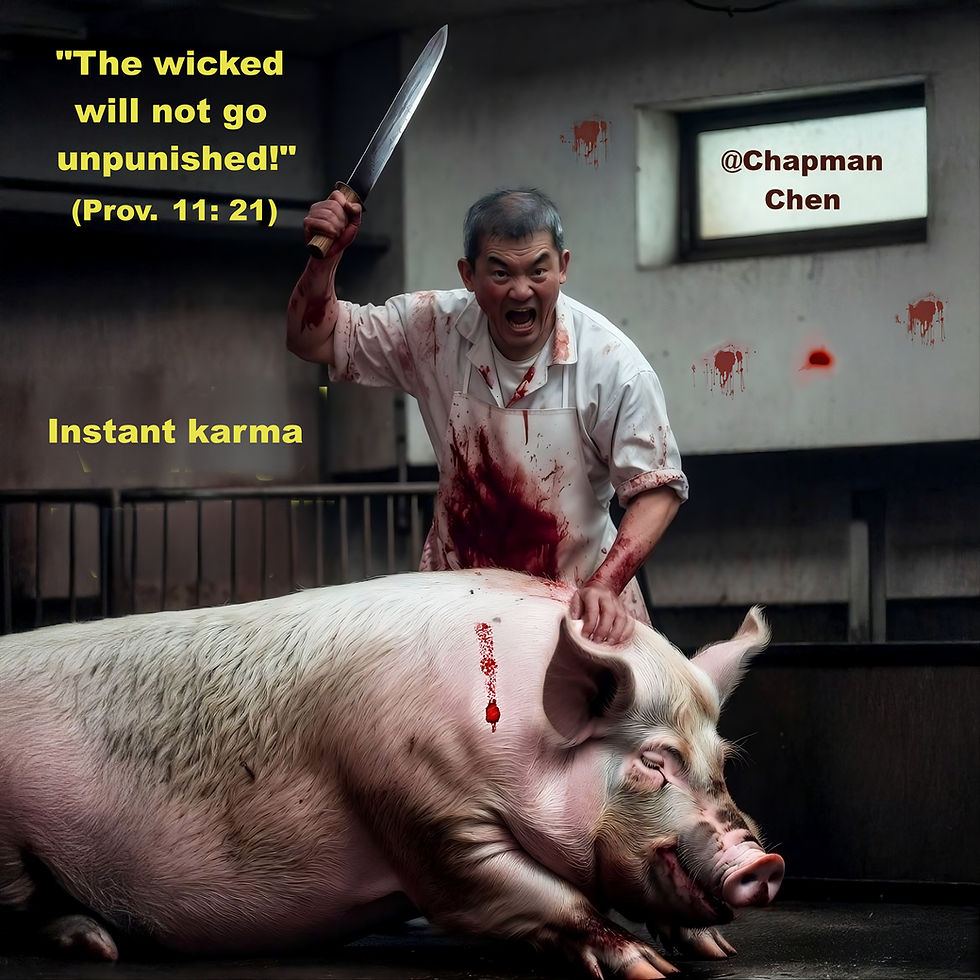“Go Vegan and Live in Tune with the Spiritual Power.” ~ Dr Jane Goodall. By Dr Chapman Chen
- Chapman Chen

- Oct 2, 2025
- 3 min read

Dr. Jane Goodall (1934–2025), the celebrated British primatologist and vegan advocate for animal rights, passed away on 1 October 2025 at the age of 91. Goodall often spoke of sensing a “great spiritual power” in relation to nature and animals:
“All the time, I was getting closer to animals and nature, and as a result, closer to myself and more in tune with the spiritual power that I felt all around.” (Goodall 1999).
“I don’t have any idea of who or what God is. But I do believe in some great spiritual power. I feel it particularly when I’m out in nature. It’s just something that’s bigger and stronger than what I am or what anybody is. I feel it. And it’s enough for me” (see Reader’s Digest 2016).
For her, this Power was not abstract but tangible in the forests, rivers, and above all the animals she devoted her life to studying and protecting. It was this spiritual sense of the sacredness of life that shaped her diet. As she explained:
“I stopped eating meat some 50 years ago when I looked at the pork chop on my plate and thought: this represents fear, pain, death. That did it, and I went plant-based instantly” (Goodall 2017).
In her later writings, she linked this moral conviction with a more cosmic vision. In the foreword to Ervin Laszlo’s The Intelligence of the Cosmos, Goodall declared:
“We must accept that there is an Intelligence driving the process, that the Universe and life on Earth are inspired and in-formed by an unknown and unknowable Creator, a Supreme Being, a Great Spiritual Power” (Goodall 2017, p. vii).
From a vegan theological perspective, this is crucial. If the universe is indeed animated by a Supreme Consciousness, then compassion and respect for animals are not optional lifestyle choices. They are acts of alignment with the divine order of creation. To consume animal flesh, which Goodall recognised as embodying “fear, pain, death” (Goodall 2017), is to rebel against that order. To embrace veganism, by contrast, is to live in harmony with the sacred Intelligence that animates all life.
Thus, Jane Goodall’s testimony bridges science, ethics, and spirituality. Her veganism was not merely ecological or humanitarian: it was an act of reverence for the Divine Presence woven through creation. #VeganChrist #VeganGod #VeganTheology #VeganChurch
References
Goodall, J. (2017, April 28). Why I went plant-based (and why we should all eat less meat). The Jane Goodall Institute. https://news.janegoodall.org/2017/04/28/why-i-went-plant-based-and-why-we-should-all-eat-less-meat/
Goodall, J. (2017). Foreword. In E. Laszlo, The intelligence of the cosmos: Why are we here? New answers from the frontiers of science (pp. vii–ix). Inner Traditions.
Goodall, J., & Berman, P. (1999). Reason for hope: A spiritual journey. New York, NY: Warner Books.
Reader’s Digest. (2016, December 23). Jane Goodall on spirituality. https://www.rightattitudes.com/2016/12/23/jane-goodall-on-spirituality/
Editor’s note:
Jane Goodall was the founder of the Jane Goodall Institute, an organisation dedicated to wildlife conservation and research, and she served as a United Nations Messenger of Peace. As the world’s foremost primatologist and leading expert on chimpanzees, Goodall spent more than 50 years observing the Tanzanian apes, revolutionising our understanding of their behaviour. The title paraphrases Dr. Jane Goodall’s statements about her veganism and her sense of being “in tune with the spiritual power” she felt in nature. It is not a verbatim quotation.





Comments